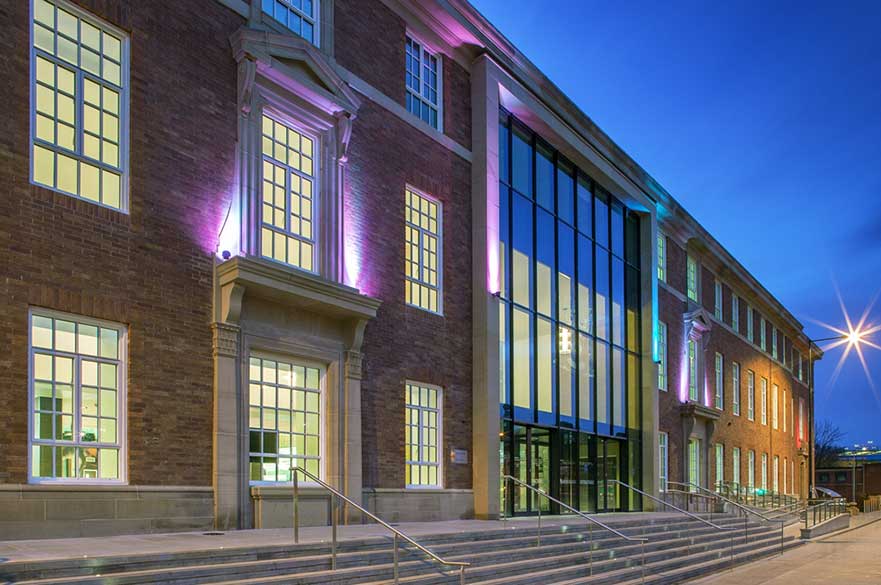As part of our #HereForDerby campaign we focus on the Digital Workforce Project – rolling out new technology which has helped hundreds of colleagues work from home during the pandemic, and keep essential services running.
From making sure the democratic process keeps running, to helping teams feel less isolated and communicate more effectively, the impact of new technology at the Council in recent months has been huge.
Hundreds of colleagues have gone from largely office-based roles and traditional ways of working, to being able to do their jobs from home full-time, and ultimately keep essential services running.
We were already well underway with our Digital Workforce project – an extensive programme to create a more modern, flexible organisation able to work more efficiently and better respond to the needs of customers.
And thanks to that hard-earned groundwork, when the pandemic hit and our daily lives were turned upside down almost overnight, we were in a really strong place to respond.
It included months of complex technical work and testing to make sure that the new systems – Microsoft 365 (formerly called Office 365), a new Windows 10 laptop offer, Skype for Business and smartphone technology – could be rolled out across the Council and Derby Homes as smoothly as possible.
Alistair Taylor said:
Colleagues had been working incredibly hard over the last year to get us to the point we were at when coronavirus started to have an impact here. Project and Change Manager in IT. We were just starting the planned roll-out of the technology, with face-to-face sessions for colleagues when very quickly that model had to change because of social distancing rules. At the same time it was becoming clear that as many people as possible would need to move out of the offices and work from home for the foreseeable future – and we had to very swiftly respond to that, in terms of fast-tracking the planned roll-out of our new technology.
In total, 1,000 Windows 10 devices equipped with Skype for Business (and over 2,000 additional colleagues were set up with Skype for Business on existing devices) as well as 600 new smartphones, were set up and allocated to colleagues and teams identified as in priority need – all at break-neck speed.
Alistair added:
The team were working all hours to plough through the sheer volume of work that it took to get as many people set up, as quickly as possible. I can’t fault the dedication of everyone involved, there was an amazing team spirit to just pull together and do what needed to be done.
In particular, the switch to using Skype for Business has brought huge benefits across the Council. But again, it was only because of months of preparation that we were in a position to act quickly.
Aside from aiding day-to-day working and collaboration across the Council, within teams and with our partners, Skype has supported some crucial activity, including:
- Council meetings, including Cabinet and the AGM are being broadcast to the public on YouTube via Skype for Business, meaning the decision-making and democratic process can go ahead
- Hundreds of colleagues attended the first virtual Managers’ Conference, with interactive Q&A session thanks to Skype
- Countless other board and general meetings within our organisation and in collaboration with external partners
Many other key elements of ‘behind-the scenes’ work have had real impact on colleagues’ ability to work from home, and flexibly – implemented thanks to great team work from IT colleagues.
Alistair added:
Although it has come about in unfortunate circumstances, we’ve been thrown into new ways of working without much choice. It’s helped many people quickly get to grips with the new technology and how it can help us to continue to deliver services to the city, even in the most challenging situations.
